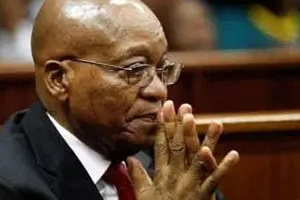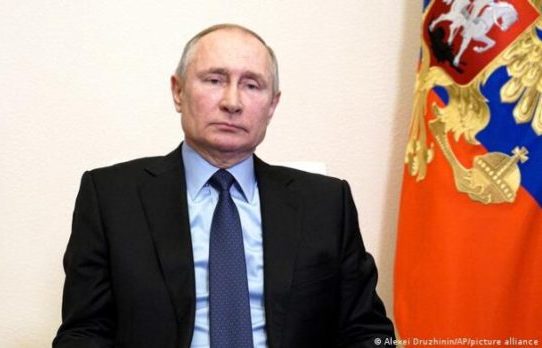Ex-South African leader Jacob Zuma took more than 700 bribes – Prosecutors

Former South African President Jacob Zuma accepted more than 700 bribes over the course of a decade before he was president, including cash payments from French arms company Thales, prosecutors alleged on the first day of Zuma’s corruption trial on Wednesday.
Zuma, the president of Africa’s most developed economy from 2009 until he was forced out amid other graft scandals in 2018, was charged with multiple counts of corruption, as well as racketeering, fraud, tax evasion, and money laundering. He pleaded not guilty to all counts and claimed the trial was politically motivated.
The 79-year-old Zuma, who wore a blue suit, red tie, and a face mask in court, also filed papers asking for the chief prosecutor to be removed from the case, claiming he was biased. The judge said he would consider Zuma’s application.
Zuma could be jailed for 25 years if convicted.
After the trial was adjourned until July 19, Zuma addressed hundreds of his supporters outside the courthouse.
“I have never taken anything from anyone. I have done nothing wrong,” he said.
The corruption charges relate to the time before Zuma was head of state but a political figure on the rise, and include the period when he was deputy president of South Africa from 1999 to 2005.
Prosecutors alleged he received bribes from various sources, not just Thales, between 1995 and 2005. During those years, he progressed from provincial politician to deputy president of the ruling African National Congress party, and then deputy president of the country.
Thales is also facing charges at the trial and pleaded not guilty to racketeering and money laundering. Together, Zuma and Thales face 18 charges. The trial was postponed until July 19.
Prosecutors said Zuma and Thales were involved in what was effectively an organized criminal enterprise between 1995 and 2001. Zuma agreed to accept annual payments of around $40,000 from Thales, prosecutors alleged, in return for him providing “political protection” and ensuring there was no investigation into a major arms deal Thales secured with the South African government. The deal was signed in 1999 while clouded by allegations of graft.
Zuma was first formally implicated by prosecutors over the deal in 2005 and fired as deputy president as a result. The charges were dropped and reinstated numerous times over the next 13 years amid allegations of political interference. Meanwhile, Zuma revived his political career to become South African president just four years after being fired as deputy president.
The charges were reinstated by the National Prosecuting Authority in 2018 and Zuma finally answered to them Wednesday in a courthouse in the eastern city of Pietermaritzburg, 16 years after he was first linked to the case.
In the indictment, prosecutors provided a list of 791 payments made either directly to Zuma’s bank accounts or to others for services on behalf of Zuma between October 1995 and June 2005. The money came from companies connected to Zuma’s former financial advisor, who was convicted of corruption in 2005. The advisor is accused of soliciting bribes for Zuma from Thales and being the go-between, but also of bribing Zuma for his own business interests.
Some of the payments were for as little as $7 and others for as much as $28,000. They were listed in bank records as “Zuma family costs,” “Zuma children education” and “Zuma household costs,” among other descriptions, prosecutors said. They totaled nearly $300,000. It was unclear if those payments included any of the alleged bribes from Thales.
Zuma, who faces separate allegations of graft while he was president at an ongoing inquiry, has often characterized accusations of corruption against him as politically motivated. He even claimed in his papers seeking the removal of chief trial prosecutor Billy Downer that South African prosecution officials had colluded with foreign intelligence agencies over the years to frame him.
While it appears none of Zuma’s alleged involvement in graft while the president will form part of this trial, he is already facing allegations at the separate judicial inquiry that he oversaw massive levels of corruption while president. Zuma has refused to testify at that inquiry despite an order to do so, leading the judge in charge to ask a court to send him to jail for two years for contempt of court.
Source: africanews.com






